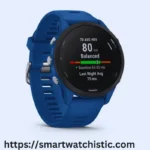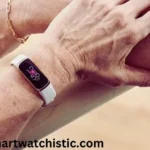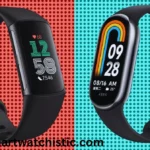In The Digital Age
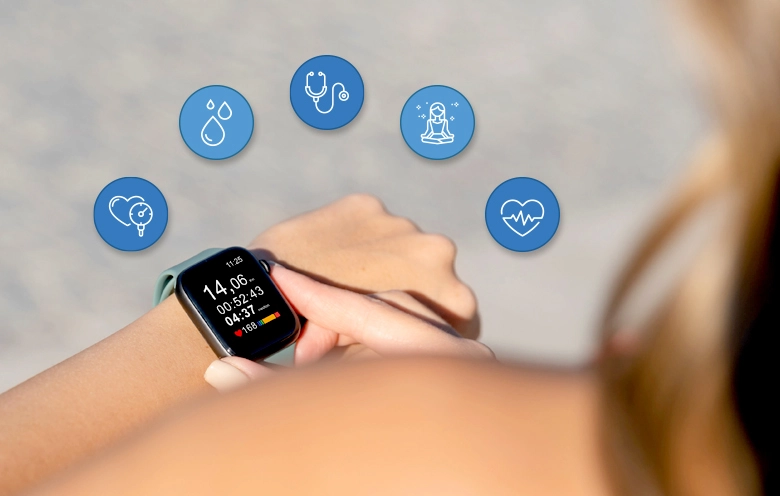
In recent years,Smartwatches can have several positive effects on health.One of the main benefits is their ability to track various health metrics, such as heart rate, sleep patterns, and physical activity. This data can help individuals gain insights into their overall well-being and make informed decisions about their lifestyle.
According to Deloitte’s survey, almost 40% of Americans have one of these gadgets, and they’re collecting a bunch of information. People use them to count steps or track workouts, but now they’re also checking things like heart health, sleep, calories, and even signs of sickness.
In this blog post, we will explore the profound impact of smartwatch on health and wellness.
The Rise of Smartwatches in Health Monitoring
Smartwatches enhance health monitoring by providing actionable insights, promoting physical activity, encouraging better sleep habits, and facilitating early detection of potential health issues.
From heart rate monitoring and step tracking to sleep quality analysis and stress management, these devices have become indispensable companions for those seeking to lead healthier lives and they can also encourage healthy behaviors and lifestyle changes.
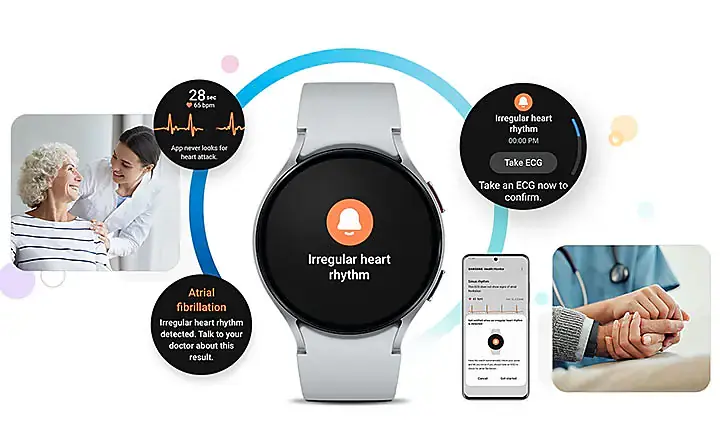
Heart Rate Monitoring
One of the standout features of smartwatches is their ability to monitor heart rate continuously.
Smartwatches often come with advanced features like a heart rate monitor. These high-tech devices utilize a technique called photoplethysmography to accurately measure the user’s heart rate.
The smartwatch can alert users if their heart rate is consistently elevated, prompting them to seek medical advice.
Step Tracking and Physical Activity
Smartwatches act as personal fitness coaches
These devices encourage users to stay active by monitoring daily steps, distance traveled, and calories burned. This promotes a more active lifestyle, which is crucial for overall health and well-being.
Sleep Quality Analysis
Smartwatches can track sleep patterns, providing insights into the quality and duration of sleep. Improved sleep hygiene can positively impact mental and physical health.
Some smartwatches even provide recommendations to enhance sleep hygiene.
Stress Management Features
Smartwatches include stress tracking features and guided relaxation exercises. By promoting awareness and providing tools for stress management, these devices contribute to overall mental well-being.
Stress has become a prevalent aspect of modern life,these devices help users recognize stress triggers and take proactive steps to manage and reduce stress levels.
Motivating a Healthier Lifestyle
The gamification aspect of smartwatches, with features like goal setting and achievement badges, motivates users to stay committed to their health and fitness goals. Additionally, social features allow for friendly competition and support among users.
Activity Reminders
Reminders on smartwatches can have a significant positive impact on various aspects of life
Reminders help users stay organized and on top of their tasks, leading to increased productivity.Users can set reminders for specific activities, helping them allocate time efficiently and prioritize tasks throughout the day.
Reminders on smartwatches play a crucial role in promoting organization, time management, health and fitness, memory improvement, stress reduction, habit formation, and accountability.
Goal Setting and Achievement
Smartwatches allow users to monitor their progress toward goals in real time. This instant feedback provides a continuous source of motivation and helps users stay on track.
Smartwatches can send reminders and notifications to keep users informed about their goals.This adds a fun and motivating aspect to goal pursuit, encouraging users to push themselves further.
Social Connectivity
Smartwatches with social connectivity features enable users to connect with friends, family, or like-minded individuals.
Being part of a social network on a smartwatch creates a virtual accountability group. Users are motivated to stay consistent with their goals when they know others are watching and cheering for their progress.
Celebrating successes together enhances the feeling of accomplishment and strengthens social bonds.
Transforming Healthcare Practices
Beyond individual users, smartwatches are reshaping how healthcare is delivered and managed.
The ability to collect and transmit real-time health data provides healthcare professionals with valuable insights, leading to more proactive and informed care.
Remote Patient Monitoring
Smartwatches with RPM capabilities can seamlessly integrate with telehealth platforms, facilitating virtual consultations between patients and healthcare professionals. This enhances the accessibility of healthcare services.
Patients and their caregivers gain peace of mind knowing that health metrics are being monitored remotely. This reduces anxiety and provides reassurance, especially for those with chronic conditions or during post-surgery recovery.
Informed Decision-Making
Access to real-time health data empowers healthcare professionals to make more informed decisions about patient care.
Improved Outcomes and Cost Reduction
Smartwatches equipped with health monitoring capabilities allow for continuous tracking of vital signs and health metrics. This enables early detection of abnormalities and potential health issues, allowing for timely interventions. Preventive measures and early interventions can lead to improved health outcomes and reduced healthcare costs associated with more severe conditions.
Addressing Concerns: Fixation on Health Metrics and Privacy
While the benefits of smartwatches in health management are undeniable, there are valid concerns that need addressing to ensure a balanced and responsible use of these devices.
Fixation on Health Metrics
The fixation on health metrics through smartwatches can have numerous benefits, it’s essential to approach it with a balanced perspective to avoid potential drawbacks.
Every individual is unique, and health metrics may have different implications for different people. It’s essential not to compare oneself excessively to others and to consider individual health contexts.
It’s essential to strike a balance and promote a holistic approach to health that considers various factors beyond numerical metrics.
Privacy and Security
A strong focus on privacy and security builds trust among users.When individuals feel confident that their personal data is secure, they are more likely to adopt and use smartwatches for various applications, including health tracking and communication.
Features like biometric authentication (e.g., fingerprint or facial recognition) or passcodes enhance security, preventing unauthorized individuals from accessing the smartwatch and its data.
How do Smartwatches Compare to Other Wearables in Terms of Health and Fitness Tracking
Smartwatches offer a broader range of features, making them suitable for users who want a multifunctional device with advanced health tracking capabilities.
Here’s how they compare in terms of health and fitness tracking:
Smartwatches
Capabilities: Smartwatches often come with advanced features like a heart rate monitor.Smartwatches have become increasingly popular in recent times because of their capacity to track different health indicators, including heart rate, patterns of sleep, and physical movements.
Complement to Smartphone: Smartwatches are often seen as a complementary device to a smartphone, offering advanced features beyond health and fitness tracking.
Price: Smartwatches tend to be more expensive than fitness trackers due to their advanced capabilities
What are the Limitations of Using a Smartwatch for Health Monitoring?
- Accuracy Concerns:
- Heart Rate Monitoring: Smartwatches may not always provide precise heart rate measurements, especially during high-intensity activities or if the device is not fitted properly.
- Calorie Tracking: Calorie expenditure calculations are often based on generalized algorithms, which may not accurately represent individual metabolic rates.
- Limited Medical-grade Accuracy: Smartwatches are not medical devices. While they offer valuable insights, the data they provide may not meet the rigorous standards of medical-grade accuracy required for clinical decision-making.
- Sleep Tracking Challenges: Sleep tracking relies on movement patterns and heart rate fluctuations, which might not provide a comprehensive picture of sleep stages. It may not be as accurate as professional sleep studies conducted in a clinical setting.
- Stress Tracking Reliability: Stress-tracking features, while useful, might not be entirely accurate in measuring stress levels. Various factors can influence heart rate variability, and stress is subjective, making it challenging to quantify accurately.
- Device Wearability Issues: Comfort and wearability can be subjective. Some users may find wearing a smartwatch uncomfortable, leading to inconsistent use and, consequently, unreliable data.
Conclusion: Impact of Smartwatch on Health and Fitness
In the ever-evolving world of healthcare, smartwatches are not just timekeepers; they are wearable healthcare monitoring devices. They’re bridging the gap between technology and healthcare, and the possibilities for remote patient monitoring are truly exciting. So, if you’re looking for a device that adds convenience to your life, keeps you connected, and helps you manage your health, a smartwatch is a great choice. These little wonders are proving that they’re not just gadgets; they’re companions in your journey to a healthier, more connected life.
The choice between a smartwatch and a fitness tracker depends on individual preferences, needs, and lifestyle. Smartwatches offer a broader range of features, making them suitable for users who want a multifunctional device with advanced health tracking capabilities. Fitness trackers, on the other hand, are ideal for individuals focused primarily on monitoring physical activity and maintaining a healthy lifestyle without the additional features of a smartwatch. Ultimately, the best choice depends on the user’s priorities and how they plan to incorporate the wearable into their daily routine.
